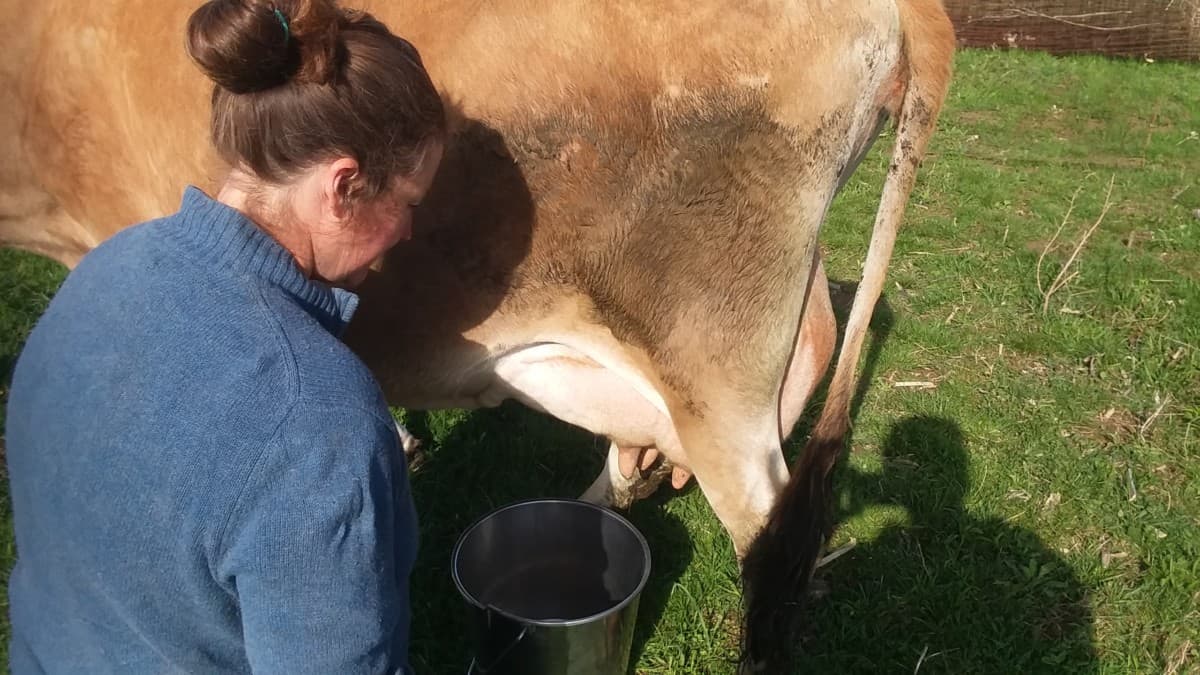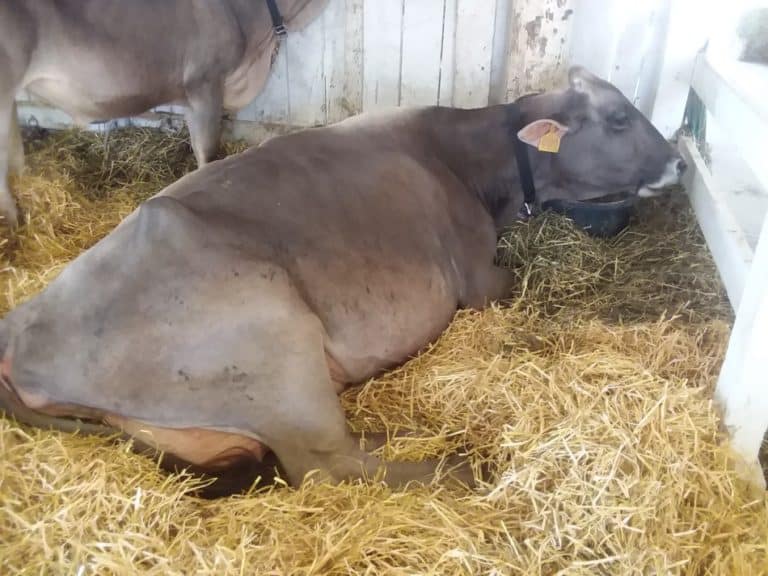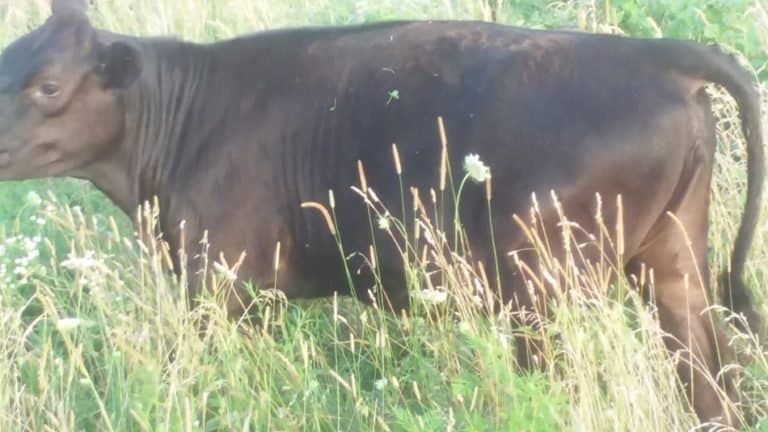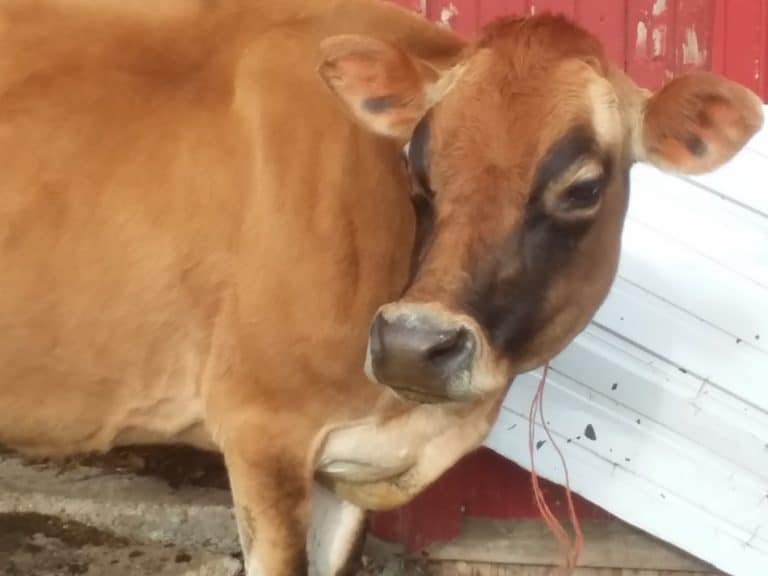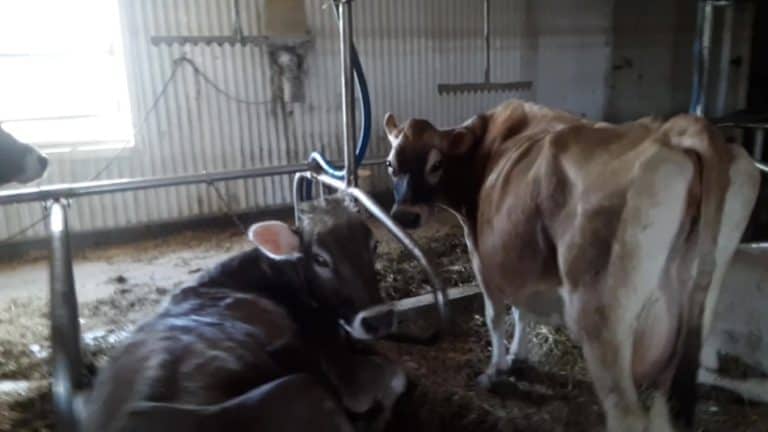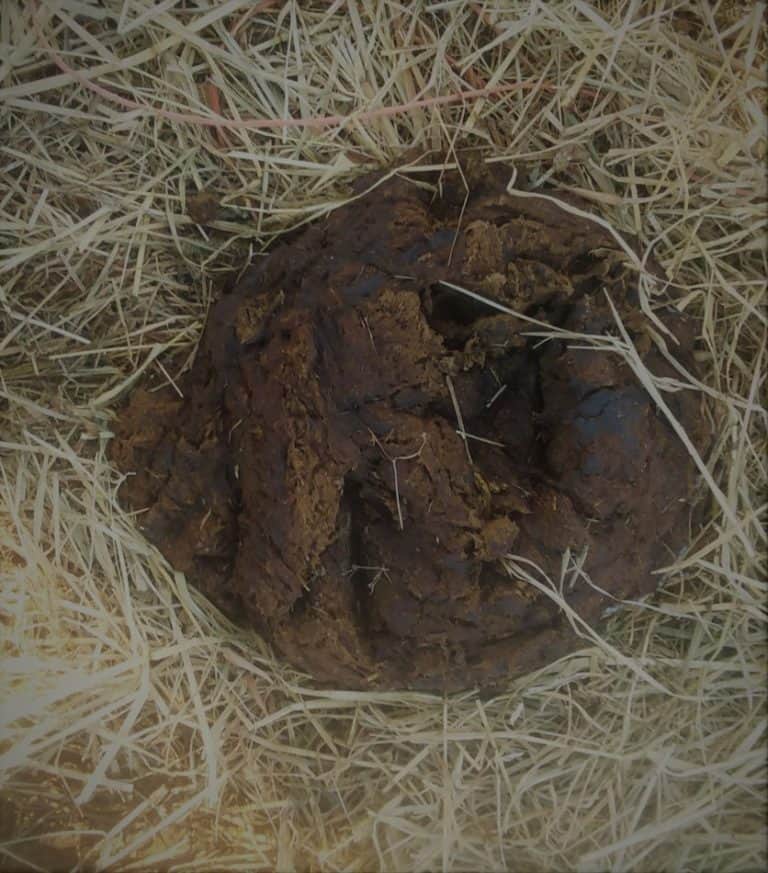Why Does A Cow Need To Be Milked? Sorting Out Myth From Reality
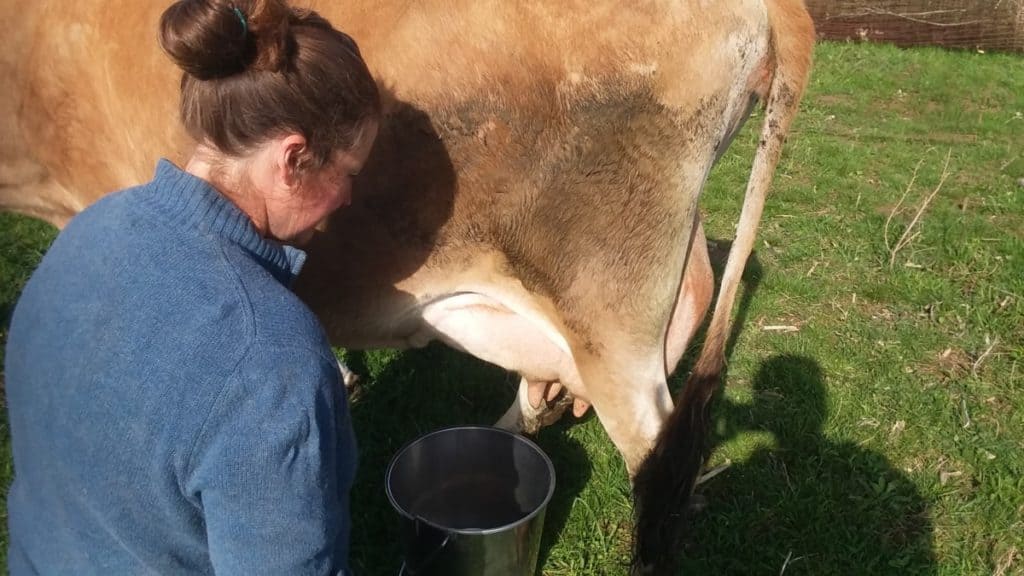
Is milking a cow good for her or just plain mean? I’m sure you’ve run across both ideas searching around online.
What is the real deal? Those two statements are pretty far apart, so where is the truth?
A cow needs to be routinely milked to keep her healthy and encourage her to keep producing milk in the future. Not milking a lactating dairy cow causes her discomfort and disrupts her normal routine.
We have a family cow, Aleene, the Jersey pictured above. My husband and I share milking duties and I’m the one getting ready to milk her this time.
How do you know if you’re ready? My guide “Are You Ready For A Family Cow?” will walk you through the things you need to have figured out, including feeding needs and daily care, before you get your cow.
Your Family Cow’s Milk Production is an article I wrote to help you understand the milk production from your cow and how the amount of milk will fluctuate depending upon what she eats and how long ago her calf was born.
Why am I telling you this? So you will know that we spend time with our cow everyday.
This is first hand experience talking when I tell you Aleene likes to be milked. She seems to find it relaxing.
Normally, we don’t even need to tie her, she just stands still for milking.
Think about it, if milking hurt her or she was trying to avoid it, why would she stand there?
She’s not in a pen, she just zooms around the yard and a few small fields close to the house.
She could easily be somewhere else when I show up with the milk pail. She could outrun me or just push me away, but she does neither.
Aleene chooses to stand and allow us to milk her because she is comfortable and milking is part of her daily routine. Cows love routine!
Now that you know a cow is fine with being milked, we move on to why are we milking her in the first place?
Let’s look into some lactation (milking) basics.
Cows need to be milked to stay healthy
All cattle produce milk to feed their calves (baby cattle are called calves or calf is there is just one).
Cattle kept for beef only, wild cattle and, of course, dairy cattle, all naturally produce milk to feed a baby.
Milk production for the baby is the main characteristic of mammals -including us as humans.
As her calf grow she will produce more milk each day up to her maximum genetic ability which is generally around six weeks after the calf is born.
She will produce at this level as long as feed remains plentiful and her calf continues to take all that she can produce.
If she and her herd mates are providing for themselves, as soon as the good feed starts to be less plentiful she will start to lower production of milk.
She needs to have enough body reserves to survive the coming harsh season-this would be winter here in the states but summer is the toughie in other parts of the world.
People take care of domestic cattle needs
For domestic cattle, especially dairy cattle, the harsh weather conditions and time of dietary restrictions are not something she has to deal with.
The farmer takes care of food, water, shelter and health care for her and the rest of her herd.
This life of plentiful resources for the cow makes taking care of herself much easier.
A happy well fed cow milks more and has a better life in general.
The Importance Of Milking Cows goes over milking from more of a commercial dairy farm perspective.
Milking a cow helps her make more milk
She needs milked to continue to produce more milk for later today and tomorrow and next week-this is her job.
You could think of the cow as an employee of the farm.
Her job is to make milk for the farmer to sell and her pay is plentiful food, water, health care and cow friendly living space.
She “works” helping the farm by producing the raw material for the farmer or someone else to use as as milk to drink or to be turned into other foods for people like yogurt and cheese.
She does not think about milk production her body automatically makes more milk when the udder is empty.
Just like you don’t need to think about breathing or when to be hungry it just happens.
Producing milk is one of the cornerstones of a cow living a biologically fulfilling life.
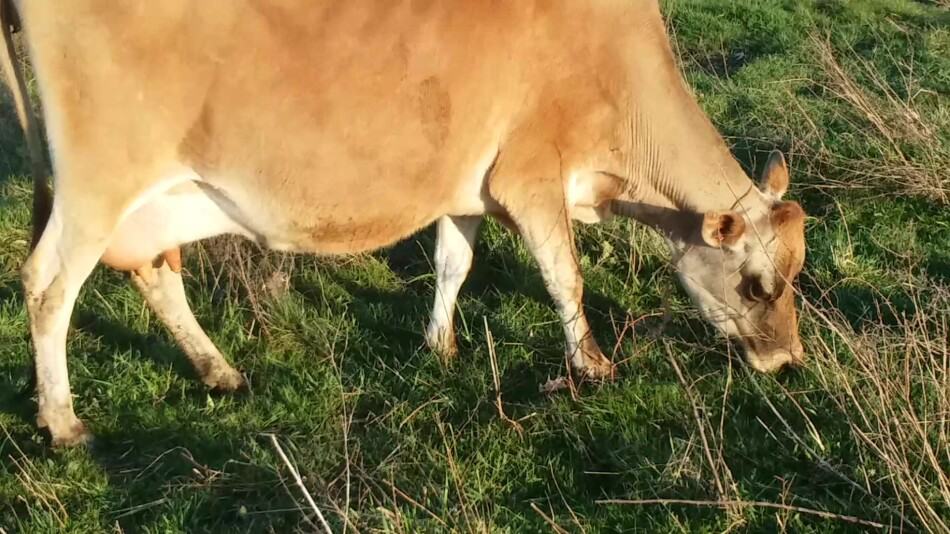
How do you know if you’re ready? My guide “Are You Ready For A Family Cow?” will walk you through the things you need to have figured out, including feeding needs and daily care, before you get your cow.
Not milking a cow reduces milk made
Milk production is based on supply and demand-if more is needed more is produced if less is needed less is produced.
This is universal for any milk producer-humans included.
If you do not milk a cow she will automatically stop producing more milk because you stopped the milking her.
If you just miss a milking time by a few hours she will still be fine. This can happen easily if the power goes out.
If you don’t milk her for more than a day this signals to her body to stop production.
Lost production will not come back this lactation
Once she decides to lower or even stop producing milk, if you try to start milking her again in a few days you will not be able to regain the lost production ability this lactation (milking cycle).
She will never go back to being able to milk as much as before until she has another calf and the lactation cycle starts again..
Cows find milking to be relaxing
Most cows actually seem to find being milked relaxing. Cows love routine and a calm environment-milking your cow provides her with both.
The only time a cow would feel discomfort when milking is if she has hurt her udder, like stepped on a teat when getting up or when she has an infection.
In either case, it is healthiest for the cow for her to be milked.
It is just like removing a splinter from your hand so you will feel better tomorrow and can start healing today.
Family Cow Daily Care goes over the things we do, every day, to keep Aleene (our cow) happy and healthy.
A cow must have a baby to make milk
All mammals including cows and people need to give birth in order to produce milk.
The length of her lactation (milking) depends upon her genetics and her environment.
This means the cow can milk for quite a while without having another calf but the initial milk production always depends upon pregnancy and birth.
Our family cow milks 3-4 gal per day
Our family cow produces 3-4 gallons per day. She just mills around eating grass but doesn’t get any grain-grain would increase her milk per day.
We hand milk our cow twice a day. Want to learn more? Click here for my article on hand milking.
A cow in a commercial dairy herd would be producing 10 gallons per day if she is a Holstein and more like 5 gallons per day for a Jersey.
Cows are generally milked for 10 months out of the year then take two months off for a dry period.
A dry cow is not milking she’s resting up for a few months until her next calf is born.
The richest milk is from a Jersey
The Jersey breed is known for having the richest milk.
This means that if you were to separate the milk out into parts you would have water, fat, protein, and vitamins and minerals.
Looking for more information on Jerseys and other dairy breeds? Consider reading my article 12 Dairy Cattle Breeds.
A Jersey cow naturally produces milk with a higher percentage of fat and protein than any other dairy breed.
Of course, individual cows will all be slightly above or below average but as a breed the Jersey will have 5% fat and 3.8% protein in her milk.
Milk that has higher fat and protein gives you a richer tasting milk to drink.
You will also have a higher yield of dairy products like butter or cheese per gallon of Jersey milk.
How do you know if you’re ready? My guide “Are You Ready For A Family Cow?” will walk you through the things you need to have figured out, including feeding needs and daily care, before you get your cow.
Related Questions
How old is a cow when she first starts to milk?
A cow (called a heifer until she has a baby) will start her milking career when she is two years old.
What breed of cattle can produce the most milk?
The breed that produces the most milk is a Holstein. These are the bigger sized black and white cows common on commercial dairy farms.
An average milk yield from a Holstein cow is 10 gallons per day.
